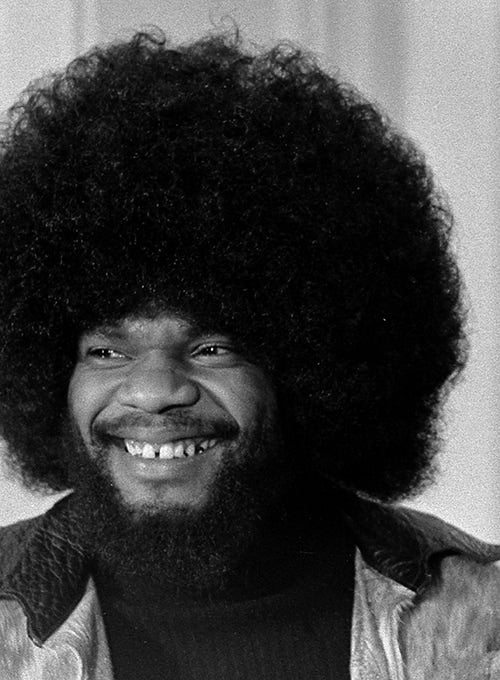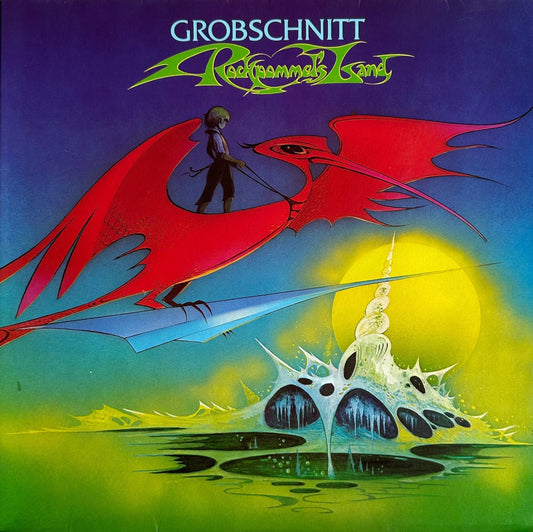Old-school 45-rpm records have an A- and B-side. The A-side is the featured song an artist or producer believes has “hit” potential. The B-side is considered less promising, though occasionally it has outperformed the other. Life sort of has an A- and a B-side, too. Your A-side may be all about professional achievement, personal enrichment, family contentment, etc., while your B-side, well, maybe that’s the stuff you’d prefer is kept under wraps.
The late Billy Preston was an extraordinary keyboard player with an A-side rich with musical achievement, and a B-side full of personal tumult.
Many of us recently got reacquainted with Preston in Peter Jackson’s fab documentary The Beatles: Get Back (reviewed in Copper Issue 152). It’s immediately apparent in the film that Preston’s contributions are significant both musically and spiritually. The Jackson film showcases via sight and sound the evolution of many classic Beatles tracks, with Preston making several sonically whole with his playing on a Fender Rhodes electric piano. It isn’t just his wonderful solo on “Get Back” (the song), but also his piano riffs on tracks like “I’ve Got A Feeling” and “Don’t Let Me Down.” “The Beatles With Billy Preston” on the “Get Back” single is the only song credit ever awarded to a non-Beatle (excluding the Beatles’ early 1960s recordings with Tony Sheridan).
Kudos to the Beatles (and George Harrison, in particular) for recognizing a need for a richer rhythm section with Preston’s addition, while still remaining true to the project’s live-to-tape goals. With more traditional Beatles’ recordings, they’d often add overdubs and dabble with in-studio experimentation, but again, that wasn’t part of the stripped-down agenda for this project.
The Jackson documentary is full of intimacy, emotion and spontaneity, and humanizes the Beatles in a much bigger way than its predecessor, the far shorter 1970 film by director Michael Lindsay-Hogg. In many ways, Billy Preston is the project’s unsung hero and agent of change, influencing the Beatles’ rehearsals, song development, and even the climactic concert finale atop Apple Corps headquarters. Preston’s keyboard work – while not overly complex – nonetheless is spot on and created seemingly effortlessly by him.
Reflecting on how Preston influenced the band’s dynamics, the late George Harrison said, “It’s interesting to see how nicely people behave when you bring in a guest, because they don’t want everybody to know they’re so bitchy. Suddenly everybody’s on their best behavior.”
A man seemingly of few words and a perpetual smile, Preston’s calm portrayal in the film is somewhat at odds with his deeply troubled past. A devout Christian, Preston had difficulty coming to terms with his own sexuality, which he hid from everyone except close friends, until finally coming out in group therapy towards the end of his life.
As a child Preston was a victim of sexual abuse, while later as an adult he was accused of sexual assault, though the charge was ultimately dismissed. His hardships didn’t end there, however. Preston had a heavy addiction to alcohol and cocaine, which by his own admission became a $1,000 a day habit. His addictions led to jail time on several occasions, though perhaps his biggest transgression was staging a fire at his home as part of a $1 million insurance fraud scheme. Preston, already in jail for violating parole on a conviction of cocaine possession, received an additional one-year jail sentence for insurance fraud, which he concurrently served with the probation violation at California’s Avenal State prison. While incarcerated he led the prison’s chorus and religious services, and it’s where he finally turned the corner and overcame his addictions.
Preston’s drug addictions, hefty legal expenses and jail and prison time led him to declare bankruptcy on two occasions. All of these problems contributed to his deteriorating emotional and physical health, including suffering from chronic kidney disease. Preston received a kidney transplant in 2002, but it failed, necessitating his getting dialysis as often as three times a week. When touring, his management team occasionally had to coordinate his dialysis city-by-city. Preston ultimately succumbed to kidney disease and complications from pericarditis, a swelling of the tissue around the heart, in 2006. He was 59.
While Preston’s B-side journey was full of many sad and troubling periods, his A-side musical journey was extraordinary. Self-taught on piano and considered a child prodigy, Preston was performing by age 10 with gospel legend Mahalia Jackson. At 11 he performed a duet with Nat King Cole on a TV variety show. By 1962 he was playing with Little Richard, and during that time he first met the Beatles, who on occasion were on the same bill in Liverpool and Hamburg. His relationship with the Beatles would remain strong for decades, recording with the band (Let It Be, Abbey Road) and on solo albums by John, George and Ringo.
By 1963 he had released his first solo LP, 16 Yr. Old Soul, on a record label owned by the late Sam Cooke. A few years later, Preston was touring and recording with Ray Charles, including playing on the classic “Let’s Go Get Stoned.” Charles paid Preston the ultimate compliment, saying, “Billy is the man I’d like to carry on the work that I started.”
He was one of the first artists signed to Apple Records, releasing in 1969 the gospel-infused LP and song of the same name That’s The Way God Planned It, produced by George Harrison. The single was a hit in Britain and reached Number 62 on the US Billboard Hot 100. His follow up LP on Apple, Encouraging Words, (1970) included the very first recording of George Harrison’s “My Sweet Lord.”
Preston had a particularly close personal and professional relationship with Sly Stone (Sly and the Family Stone). Stone produced his first Capitol Records release, The Wildest Organ in Town (1966), while Preston played on several Sly and the Family Stone LPs. Their friendship, however, would sadly come to a disturbing end. In the early 1970s Preston was engaged to be married to model-actress Kathy Silva. One afternoon he came home to find Silva in bed with his good friend Stone, ending both an engagement and a friendship (and putting an entirely different spin on the name “Sly”). Silva would later go on to marry Stone onstage at Madison Square Garden. According to those close to Preston, the traumatic breakup with Silva only added to his sexual identity issues.
Preston left Apple in 1971 for A&M Records, where he had his greatest commercial success as a solo artist. “Will It Go Round In Circles” (1973) and “Nothing From Nothing” (1974) both reached Number 1 on the US Billboard Hot 100, while “Outa-Space” (1971) and “Space Race” (1973) each reached Number 2 on the Billboard R&B chart. A signature look for Preston during this period was his Afro hairstyle. It was global in shape and exceedingly large, some even likening it to a giant mushroom cloud. If an award were given for “Best 1970s Afro,” Preston would be a prohibitive favorite. He left A&M in 1979 for Motown Records, where he released four albums, followed up by a considerably less prolific period of music creation between 1984 through 1997.
Throughout his career, Preston was a highly sought-after session performer for a wide range of artists and musical genres. His lengthy discography includes recordings with Sam Cooke, Joni Mitchell, Aretha Franklin, Barbara Streisand, Elton John, Peter Frampton, Luther Vandross, Whitney Houston and Neil Diamond, to name a few. He also toured with both Eric Clapton and Steve Winwood. Between 1973-1977 he was the primary touring keyboardist for the Rolling Stones, in addition to playing on several of their iconic recordings, including Sticky Fingers (1971) and Exile on Main Street (1972).
Some lesser-known achievements of Preston’s include co-writing the song “You Are So Beautiful,” best known by the recording by Joe Cocker. He added to yet another artist’s legacy by happenstance. Preston and singer-songwriter Stephen Stills (Crosby, Stills, Nash & Young, Buffalo Springfield, Manassas) were both at a party when Preston blurted out the memorable and very 1970s-appropriate quip, “if you can’t be with the one you love, love the one you’re with.” Stills loved the line so much he asked Preston for permission to write a song around it, ultimately becoming the central lyric in the Stills classic “Love The One You’re With.”
Preston is a nine-time nominee and two-time Grammy award winner, finally getting inducted into the Rock and Roll Hall Fame with a Musical Excellence Award in 2021.
Shortly before his death, Preston collaborated with the legendary Sam Moore (Sam and Dave) on a joint recording of “You Are So Beautiful” for Moore’s LP “Overnight Sensational” (2006). Preston was able to listen to what turned out to be his very last recording from his hospital bed in a semi-conscious state. The beautifully arranged and produced song, with Eric Clapton on guitar, received a Grammy nomination.
Little Richard eulogized Preston at his funeral, and Joe Cocker, The Temptations and Merry Clayton also performed. Letters written by Paul McCartney, the Rolling Stones, Eric Clapton and others also were read aloud.
Unfortunately, this tragic story doesn’t end there. Documents filed in a US bankruptcy court in 2007 by Preston’s estate alleged that family members and associates, including his daughter and a half-sister, egregiously mismanaged both his health needs and finances, ultimately leading to the filing of a disinheritance order that the aggrieved parties contested for years. Most of this had to do with the future distribution of royalties on Preston’s songs, as well as ownership of his intellectual property. The estate was finally settled in 2015.
In sum, Preston’s life challenges admittedly are far more extreme than most, with fame and success hardly insulating him from a great deal of emotional and physical duress. It’s the classic story that outward appearances often can be deceiving, particularly for those in the music and entertainment business. What often looks like a highly charmed life (and for many, it is), nonetheless can still be fraught with sadness and peril, with fame and success sometimes even exacerbating the difficulties.
Let’s not dwell on Preston’s B-side, as sad as it was. Instead, let’s celebrate his wondrous A-side legacy and the rich contributions he made to the world of music.
Epilogue: An as-yet untitled documentary film on the life and times of Billy Preston is currently in pre-production. Emmy-award winning writer/director Paris Barclay (In Treatment, Glee, The West Wing) is directing and co-writing the film, along with co-writer and longtime music journalist Cheo Hodari Coker. Said Barclay, “the Billy we’ll see in this film was a mass of contradictions. I’m thrilled to dig deeper into the complex man under the Afro, and behind the famous smile.”



